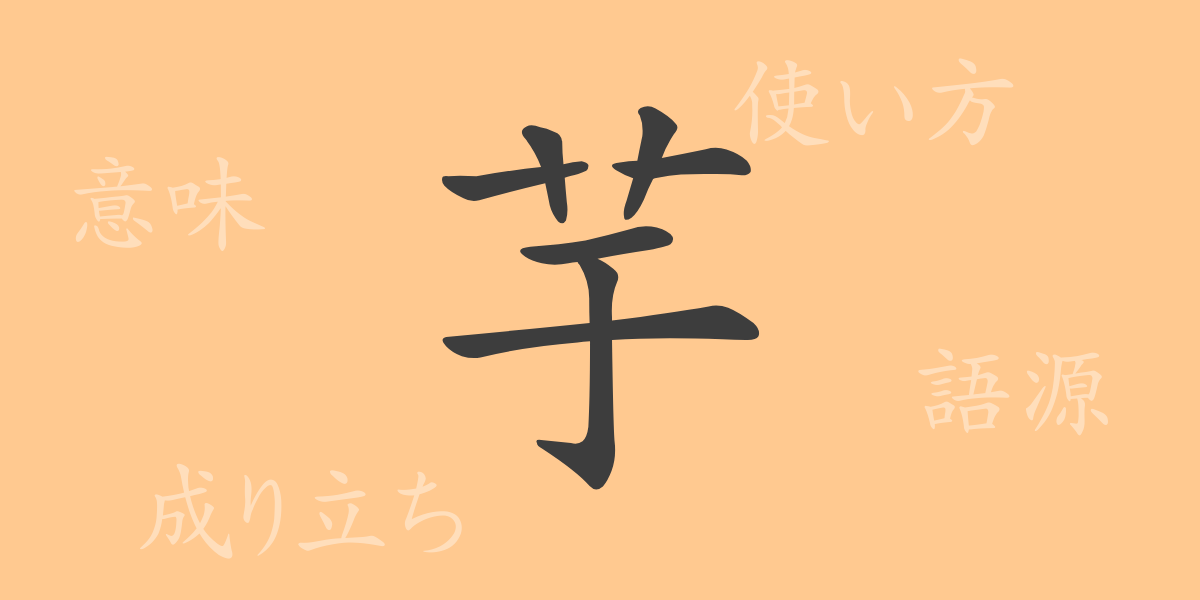“
The intricacies of Japanese writing enrich the culture, with each Kanji bearing unique historical and semantic significance. The Kanji ‘芋’ (Imo), frequently encountered in daily life, holds a backstory and meanings that may often go unnoticed. This article delves into the Kanji ‘芋’, exploring its etymology, meanings, usages, as well as its appearances in idioms and proverbs to rediscover the richness of Japanese language.
Origins of 芋 (Imo)
The Kanji ‘芋’ traces back to ancient China, initially representing plants dug from the earth. As a Kanji, ‘芋’ generally denotes plants with underground stems or roots, often implying those that are edible. In Japan, it commonly refers to tubers such as sweet potatoes and potatoes, ingraining itself into the everyday Japanese vocabulary.
Meaning and Usage of 芋
‘芋’ typically refers to edible tubers. In culinary contexts, it indicates various types of tubers like ‘サツマイモ’ (sweet potato). Phrases such as ‘芋を掘る’ (to dig up potatoes) and ‘芋が実る’ (potatoes yield fruit) are commonly used to express agricultural activities or harvesting. It is also metaphorically used in expressions like ‘芋の煮っ転がし’ to denote something simple and unadorned.
Readings, Stroke Count, and Radical of 芋
The Kanji ‘芋’ is straightforward in its pronunciation and structure:
- Readings: On’yomi (Sino-Japanese reading) is ‘U’, kun’yomi (native Japanese reading) is ‘Imo’.
- Stroke Count: ‘芋’ consists of 6 strokes.
- Radical: The radical of ‘芋’ is ‘艸’ (Kusakanmuri), which is related to plants.
Idioms, Phrases, and Proverbs Involving 芋
Japanese language is rich with idioms and proverbs involving ‘芋’, reflecting cultural attitudes and values:
- ‘芋を洗うよう’ (like washing potatoes): Describes a situation where people are crowded together chaotically.
- ‘芋の煮っ転がし’ (a plain boiled potato): Refers to something or someone simple and straightforward.
- ‘芋の子を洗うよう’ (like washing the children of potatoes): Used to describe a scene of people mingled in confusion.
Conclusion on 芋
The Kanji ‘芋’ deeply intertwines with Japanese life and culture, from its culinary uses to its metaphorical presence in language. Understanding the meanings and stories behind a simple character like ‘芋’ enhances appreciation for the Japanese language’s depth and the cultural significance of food in everyday life.
“

























